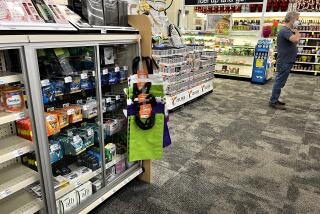ID Theft Losses Hit $57 Billion
- Share via
NEW YORK — U.S. consumers lost nearly $57 billion last year to criminals who stole their identities, but online fraud was the culprit in just one in 10 cases, according to a survey released Tuesday.
The study by the Council of Better Business Bureaus and Javelin Strategy & Research showed that identity theft cost U.S. consumers 4% more in 2005 than the $54.4 billion it cost in 2004. The average fraud rose to $6,383 from $5,885.
Nevertheless, the number of adult Americans who learned that criminals had stolen personal data and used it to commit fraud fell to 8.9 million, or 4%, from 9.3 million in 2004 and 10.1 million in 2003. Data showed that people who were younger and had lower incomes were more vulnerable.
Results from the phone survey of 5,000 consumers, including more than 500 identity theft victims, show that although identity theft remains a big problem, consumers are growing less gullible and more vigilant.
The survey, conducted from Oct. 17 to Dec. 4, showed that Internet fraud accounted for just 9% of identity theft cases.
Only 3% stemmed from “phishing,” a much-publicized practice in which criminals send e-mails asking prospective victims to verify personal data through links to real-looking, but fake, websites.
Thirty percent of victims lost data because their wallets, checkbooks or credit cards were lost or stolen. Fifteen percent were victimized by family members, friends or acquaintances, and another 15% by fellow employees. Eight percent fell victim to stolen or misdirected mail.
In general, people whose incomes were less than $35,000 reported larger frauds, though people who earned $75,000 to $100,000 a year reported the biggest average fraud: $9,978.
More to Read
Inside the business of entertainment
The Wide Shot brings you news, analysis and insights on everything from streaming wars to production — and what it all means for the future.
You may occasionally receive promotional content from the Los Angeles Times.










